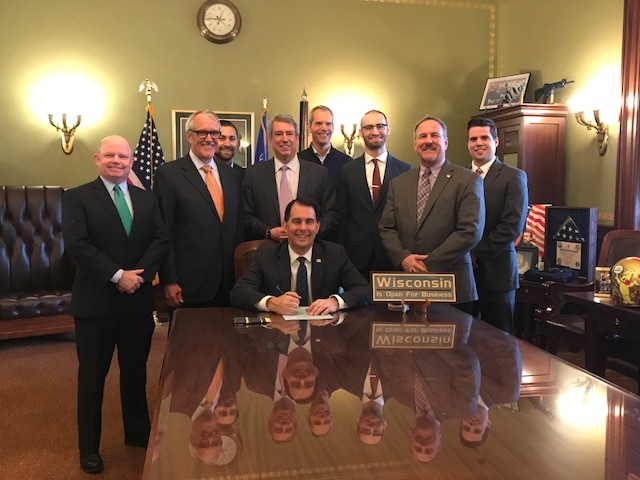Midwest Paper Group, formerly Appleton Coated, could get up to $1.8 million in tax credits
Chris Mueller, Appleton Post-Crescent
Published July 30, 2018
COMBINED LOCKS - The former Appleton Coated paper mill could benefit from up to $1.8 million in tax credits to support a revival of the facility, which shut down just last year.
The 129-year-old paper mill, which is now called Midwest Paper Group, has recalled 310 employees to date. It will need to reach 321 jobs by 2020 and maintain those jobs until at least 2022 to receive the full amount of the tax credits. The firm committed to investing a total of at least $30 million in the paper mill.
Gov. Scott Walker, who toured the facility Monday, said he recognized how critical the paper industry is for the community, region and state.
“This has been a significant part of our history,” Walker said. “I believe it will be — with the right investments and the right upgrades — a significant part of our future.”
Appleton Coated shut down in September under receivership. The closure put nearly 600 people out of work.
The mill was sold in October for $21 million to two firms, Industrial Assets Corp. and Maynards Industries USA. They primarily buy and sell used machinery and conduct liquidations and auctions.
But Appleton Coated wasn't scrapped. Instead, the new owners invested millions of dollars to upgrade the mill and machines began to start up again. About half of the employees were recalled in stages. The business has shifted heavily toward brown paper used for packaging, a high-demand product.
“This was an industry we thought was important to play a role in,” Walker said. “We’re absolutely thrilled with what’s happening here and want to continue to be partners with them going forward.”
"We're proud to continue on the legacy this community has in papermaking," Midwest Paper Group president Kyle Putzstuck said. "We're looking forward to our next steps here."
Outagamie County Executive Tom Nelson questioned why Walker and his administration didn't get involved in the process sooner, especially when the situation appeared dire for the business.
"I think it’s important to take stock of how we got here today," Nelson said. "We got here because a community — workers, labor and management — got together and willed this 100-plus-year-old company back to life."

